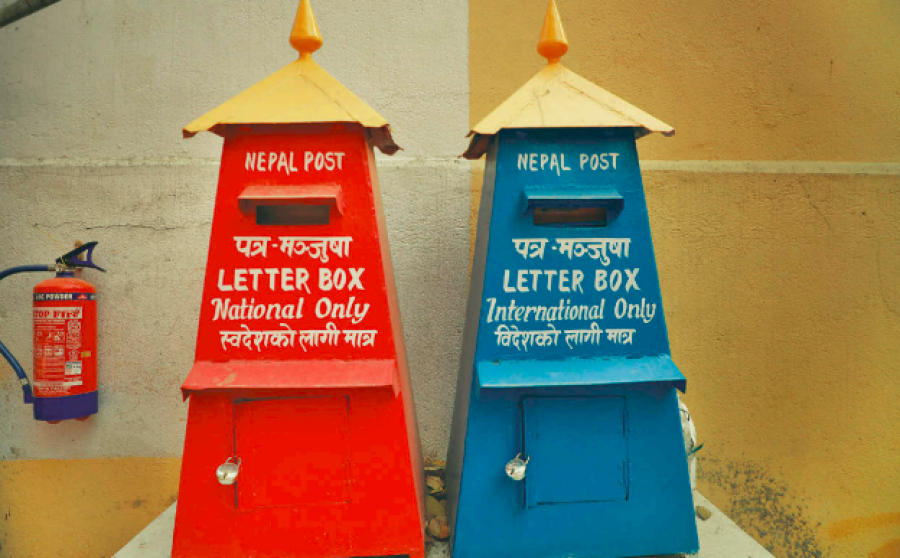Editorial
Please Mr Postman
The post office has given a flimsy excuse for failing to deliver mail.
Trust Nepal’s civil servants to find an excuse where there is none. The General Post Office remained out of work for almost six months when the suspension of international flights in March last year put an automatic brake on the delivery of letters and parcels. It resumed receiving mail when international air services restarted in September. However, months after the resumption of international flights, the post office is yet to accept outbound letters and parcels except those destined to India.
Officials blame the bankruptcy announced by Thai Airways, which has partnered with the post office for outbound delivery. They cite ‘rules’ that prohibit them from dealing with other airlines for their failure to find alternative routes to resume services immediately. What’s more, they have no idea when they hope to get out of the imbroglio even as they wait for the Thai national carrier to let them know how it hopes to fulfil its obligations as per the existing contract.
While officials of the post office feign helplessness, those at the Department of Postal Services blame procedural obstacles for the delay in the resumption of services. Meanwhile, the public has no option but to wait and hope for the best.
The post office in Nepal provides, at affordable rates, a range of services including mail, printed material, money transfer, express mail and parcel. The longstanding suspension of these services means that people as well as institutions using them are deprived of their right to affordable communication, not to speak of the loss of revenue to the government.
That, apparently, is not enough reason for the concerned authorities to expedite negotiations with Thai Airways, or find an alternative to the carrier, and resume services. The government has some serious troubleshooting work to do to ensure that its services are not hampered by procedural obstacles or minor glitches.
Moreover, there is a need to overhaul the whole postal system to make it work in the internet age when the very idea of communication has taken a wholly new meaning. Nepal’s postal service exhibits a failure on its part to reinvent and make itself a reliable communication and service delivery partner in tune with the changing times.
Although the business of letter mail has suffered an irreversible decline, that of parcel mail has increased substantially, thanks to the penetration of e-commerce in the retail market. The only survival tactic for the post office, therefore, is to reinvent the way it does business. If the postal service is entrepreneurial enough, it can increase its revenue substantially by harvesting the e-commerce windfall. It can also serve as a nodal institution for the delivery of various other public services such as passports, citizenship cards, driving licences and permanent account number cards.
Not all existential crises lead to obsolescence if the right corrective measures are taken in time. Nepal’s post office cannot continue to use procedural obstacles as an excuse for its failure to fulfil its public service obligations. As an institution that has a formidable legacy of public service and a promising future if it evolves, the post office has an enormous responsibility to remain relevant and self-reliant.




 20.12°C Kathmandu
20.12°C Kathmandu













